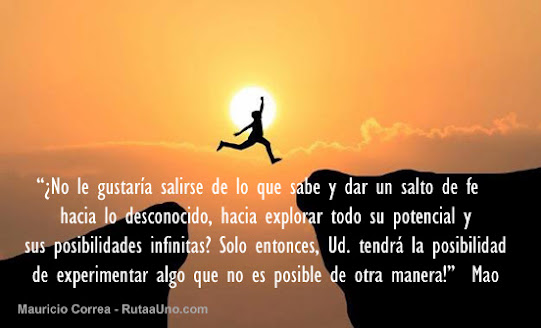EVERYTHING IS A DISTRACTION (2ND PART)
In the last article, I explained that distraction can be,
basically, anything that diverts our attention from a desired area of focus and
that our attention is not continuous as we perceive it but our ability to focus
is designed to work in bursts of attention, rather than uninterruptedly. However,
we still have the initial question pending: Is distraction a curse or a
blessing? I will address this question in this article below.
To answer this question, we need to look at this issue from
the mind or psychological standpoint. By understanding how our attention works
from the biological standpoint, we can leverage this biological limitation to
our advantage. “We can use distraction as a powerful tool for reducing the
impact of painful or negative experiences (self-suppression) or for promoting
positive experiences (self-expansion),” says Dr. Jane McGonigal in her
book, SuperBetter: The Power of Living Gamefully.
In the first case, distraction can be extremely useful to
suppress or reduce the impact of painful or negative experiences. This
technique has been used at hospitals to distract people from painful diseases,
operations, treatments, and/or medications. It is a way to get their attention
using electronic games and other applications, devices, and techniques to
prevent pain, anxiety, depression while helping the healing and recovery. We
also can use distractions to give us a break for painful or unwanted past
experiences and present ones like in the case of daily activities and dealings such
as our jobs, families, circumstances, etc.
In the second case, distraction can be a useful tool for
enhancement or self-improvement to promote positive experiences. This technique
is very practical when we are tired, bored, or just need a break of doing
certain tasks and use distraction to learn and improve our skills, knowledge,
behavior, etc.
Fundamentally, distractions are fine, a blessing, when they
are used temporarily to suppress, reduce or expand experiences. In other words,
when they are used until the treatment is done, while the patient is sick,
while you are learning something new, etc. But distractions are destructive, a
curse, when they are used continuously or permanently to avoid an uncomfortable
reality, when they are used to distract you from your main goals and objectives
or just to kill time.
The key here is “temporary.” When self-suppressing distractions
are used temporarily as a technique to suppress or reduce the impact of
negative experiences, they can be very useful and effective. However, when used
permanently, they can backfire because they can reduce our ability to build strength
and our sense of self-efficacy. “When we rely on pain-relieving distractions,
be it personal technology, drugs, or other escapes, we may never build our
capacity to deal with a painful situation, either physical or psychological,”
says Dr. McGonigal. “If the pain you’re escaping is permanent, no distraction
will ever heal it. You must either learn new coping strategies or fundamentally
fix what is broken.”
In contrast, self-expansive distractions can help us improve
ourselves and can build self-efficacy. However, when used permanently, they can
be detrimental to our productivity and efficiency. In other words, priorities
are always important. Giving higher priority to self-improvement over other
more important priorities can have a negative impact in our lives, even if they
are helping us improve.
You need to question yourself in every activity that you
perform to find out why you are doing it. Just look at your favorite distractions—social
media, music, books/magazines, phone calls, video games, puzzles, television
shows, podcasts, news, and spectator sports—and ask yourself: Why am I doing
this? Is it to suppress or reduce bad experiences; to promote positive experiences
that help build strength, skills, knowledge, and self-efficacy; or to escape an
uncomfortable reality? If your answer is the latter, you may want to
reconsider the role these distractions play in your life and start working
really hard at your habits. (Source: Psychology Today in the article
titled: When distraction is a good thing by Nir Eyal)
In a sense, when you analyze this topic deeply, everything
is a distraction until nothing is a distraction. We could easily argue that
even the most significant task with the highest priority can be a distraction from
something else. The fact is that our lives are plagued with distractions and most
people live a distracted life because even what they consider their most
significant accomplishments (i.e., work, family, friends, etc.) are just pure distractions.
The famous refrain from Alice's Adventures in Wonderland,
“If you do not know where you’re going, any road’ll take you there,” is
precisely what is happening to most human beings. They live a trivial life in
the pursuit of trivial goals like fame, superiority, possessions (i.e., money,
knowledge, things, ...), status, etc., which may give them a sense of
accomplishment temporarily but mean nothing in terms of existence, of what is
important, of exploring and seeking their full potential as human beings. In
that sense, life, and everything in it, is just a distraction.
The true nature of human beings is not chaos, division,
anger, fear and war, as we have seen throughout history and see today. Our
true nature is of union, of being one with everyone and everything, of a cosmic
identity or consciousness. This is what is commonly known as “self-realization
or enlightenment.” When you reach this point, when you reach your true nature,
nothing is a distraction. If you are not working toward this, if you are not
trying to transcend your biology, if this is not your main goal, everything is a
distraction and you are basically wasting precious time…and your life. You may
understand this now or you will at the time of death. Wake up!!! Regardless
of age, you still have time!
---------------------
If you like this article, please subscribe (it's free) and/or share it with others through your social media. Your help spreading these messages is greatly appreciated.
Author: Maurice Correa
Website: pathtoone.com
Blog: p2oblog.blogspot.com




Comments
Post a Comment